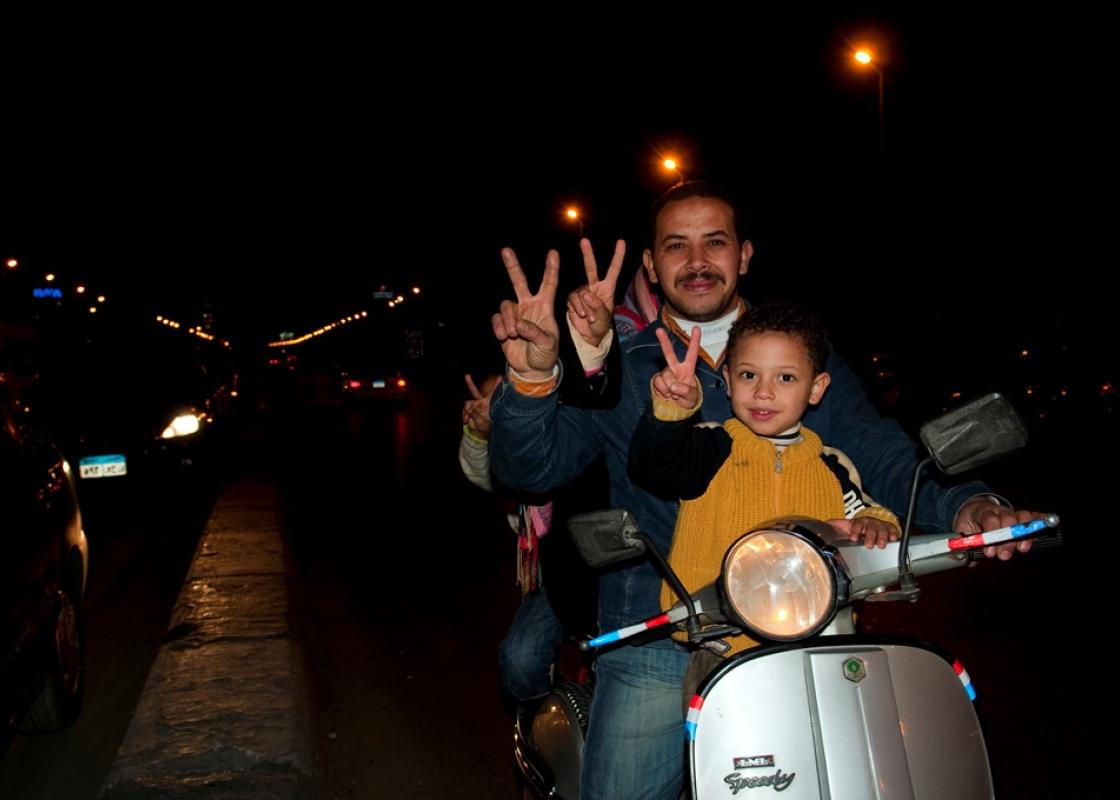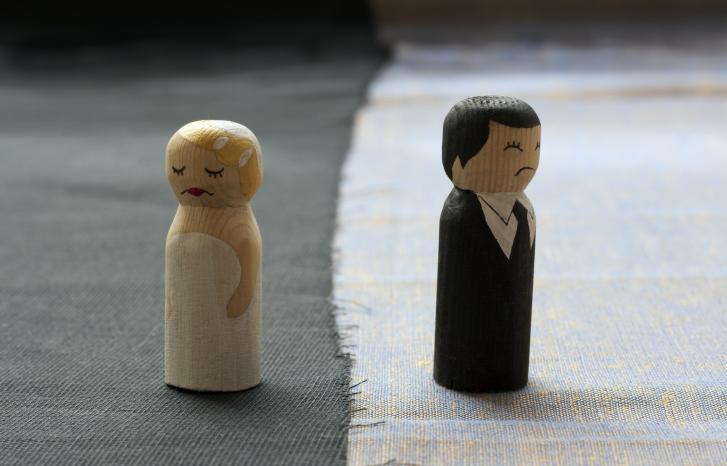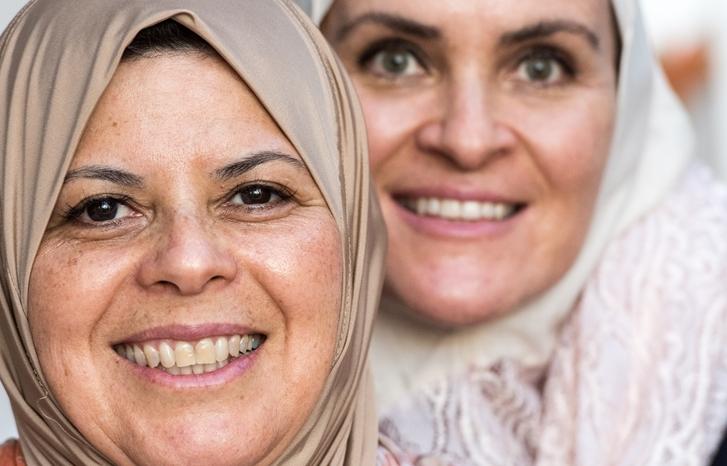“Traditional Islamic law was built on a completely different family structure than the one on which modern Egyptian law is based. When this family law was to be practiced and enforced in today’s Egyptian courts, the judges, who are not trained in classical Islamic legal theology, had much room for interpretation,” says Monika Lindbekk.
The laws were based on Shari’a legislation but categorised as modern, secular laws, she explains. This created some internal contrasts in terms of how these laws were to be interpreted and practiced.
The ideal of love as a basis for marriage is a modern construction in Egypt.
“The classical laws are based on a broader family concept than what we have today, where the extended family constitutes the family framework and the patriarch has unique legal rights,” she says.
See also: The modern Islamic Woman
Changing marriage ideals
“Today the courts are influenced by the modern idea of the nuclear family with mother, father, and child. According to classical Islamic law, however, marriage was not meant to be a lasting bond, but as time progressed, marriage as a permanent institution became increasingly important. In contrast to classical Shari’a law, marriage has become more directly linked to modern interpretations of love.”
The ideal of love as a basis for marriage is a modern construction in Egypt.
“Muslim reformers in the nineteenth century used words such as “grace” and “kindness” the way they are interpreted in the Qur'an in order to strengthen the family as the cornerstone of the modern national state,” says Lindbekk.
These ideas are also found in the Egyptian constitution. The constitution’s article 10 draws clear connections between the family as the foundation for the social structure, and moral, religion, and patriotism.
“One of the state’s most important roles is to strengthen and protect the family.”
The revolution

Originally, Lindbekk wanted to study the changes in Egyptian family law and its legal practice during the period between 2008–2013. This was a relatively static period in the political history of Egypt. Then the revolution broke out in 2011, where Egyptians revolted against corruption, widespread unemployment, and a lack of human rights under the authoritative regime of Hosni Mubarak. The revolution created problems for Lindbekk’s fieldwork.
“I was living in Cairo then the protests broke out at the Tahrir Square and in addition to the very tense security situation, the increasing nationalist rhetoric became a challenge for me,” she says.
“I was often accused of being a spy or an agent for hostile foreign regimes while doing fieldwork.”
“I was often accused of being a spy or an agent for hostile foreign regimes.”
She did her fieldwork at five different courts in five neighbourhoods in Cairo. Four were poor neighbourhoods and one was a middle class area. Lindbekk also studied various NGO’s reactions to the changes in the family laws. One of the groups she studied is equivalent to the so-called “fathers for justice” movement in Europe which is fighting for fathers’ rights.
Fathers on the barricade
Following the revolution, groups of divorced fathers who demanded more time with their children were formed. They didn’t have the opportunity to express themselves under Mubarak; now they demonstrated loudly in front of the parliament and demanded that family law be more based on Shari’a. The fathers protested against the law from the early 2000s, which gave the mothers the right to full custody until the child is fifteen, something that clearly undermines the authority of the father within the family.
“These men demanded more time with their children, and interestingly enough they used a language traditionally reserved for women in Egyptian society.”
Lindbekk links this to changing ideals of masculinity among Egyptian men.
“Men are not capable of providing for their family the way they did earlier.”
“The gender positions in Egyptian society are changing. In addition to the activism I describe in my study there are extensive financial recessions and changes in the demographic composition,” she says.
“Men are not capable of providing for their family the way they did earlier, the way it is required by traditional Islam. When one fifth of all families in Egypt is led by women, it is only natural that men have to start defining their role in society differently,” says Lindbekk.
With this backdrop, the “fathers of justice” movement invoked qualities such as affection and love, terms that traditionally run counter to classical gender roles in the Qur'an and Shari’a. There, women have the main responsibility when it comes to looking after the children whereas the fathers are responsible for the moral upbringing. Aiming to change the laws, the fathers formed strategic alliances with groups such as the female section of the Muslim Brotherhood. Lindbekk claims that the “fathers for justice” movement complicates our ideas of a clear-cut antagonism between Islamism and feminism.
See also: Immigrants embrace the Norwegian father’s quota
Changed legal practice
“The women activists, on the other hand, agitated for reforms that would implement legal approval of all divorces in order to be legally valid,” says Lindbekk.
In line with classical Shari’a, Egyptian men may divorce by uttering a formula. Inspired by legislation in Tunisia and Morocco, these women activists worked for a more gender equal right for divorce. Another main concern was to introduce a practice in which the man would need a court authorisation in order to marry polygamously.
During both the revolution in 2011 and Muhammed Mursi’s resignation following the military coup in 2013, family law was a controversial topic within the Egyptian public sphere. Lindbekk found that despite changing regimes and political instability, there was nevertheless a surprisingly big degree of standardisation of legal practices within verdicts given in divorce cases, child custody cases, and financial distribution within the family.
“In part, this was due to the fact that the legal judges were under massive time pressure, and they therefore often consulted previous cases and gave their verdicts along the same lines. Additionally, judges in Egypt are educated within a civil legal ideology in which you obey the laws and you don’t deviate from a law based on personal conviction.”
“Women are normally the ones to raise legal cases in front of the family courts.”
Since the judges often don’t have any traditional training in religious law, they often practiced a cut-and-paste type of Qur'an and Shari’a usage. The fact that they often looked to more experienced judges’ legal practice contributed to a strong standardisation and a stable usage of the law in a time of great upheaval. According to Lindbekk, this standardisation has been positive for the women.
“Women are normally the ones to raise legal cases in front of the family courts, and, accordingly, the legal verdicts are often in their favour. This is partly due to the fact that the judges often apply the principle of actively protecting the weaker part. The increased standardisation also increased the predictability of the verdicts and contributed to more women seeking legal assistance from the courts.”
See also: Gender equality gives men better lives
Translated by Cathinka Dahl Hambro
Monika Lindbekk recently defended her PhD thesis «Inscribing Islamic Shari’a in Egyptian marriage and divorce law: continuity and rupture» at the Faculty of Law at the University of Oslo. The thesis addresses how gender and ideas related to marriage are inscribed in the public debate and reflected in judicial changes during the period 2008-2013.
In line with Islamic law, Egyptian family law maintains a hierarchical division between women and men. Men are obligated to provide for their family, and, in return, the wife is obligated to obey her husband. In principle, the husband is entitled to divorce whenever and wherever without any legal procedure (talaq) by uttering a formula. The woman’s right to divorce is limited.
Recent legislation such as the khul legislation from 2000 has, however, extended women’s rights with reference to international human rights and Islamic sources. This legislation gives women the right to divorce their husband without his approval, and was followed by further legal reforms that were considered to challenge the man’s authority within the family. For instance, a law was passed in 2005 that extended the period in which mothers have child custody until children of both sexes are fifteen years of age. Then the children have the right to choose, but they normally choose to stay with their mother. This represented a clear deviation from classical Islamic law where the husband’s consent is a prerequisite for khul.



